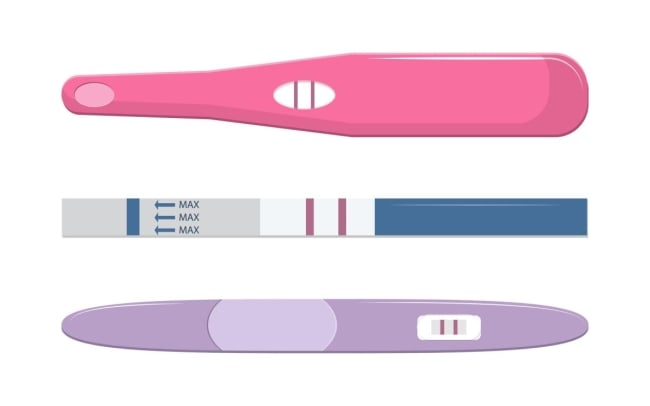You have /5 articles left.
Sign up for a free account or log in.

Elena Merkulova/iStock/Getty Images Plus
With the unprecedented threat to reproductive care posed by Justice Samuel Alito’s draft opinion overturning Roe v. Wade, more and more women, particularly those from low-income backgrounds, could find themselves having to put their educations on pause to provide for a child.
As sociologists of education, we wanted to better understand the paths and perspectives of low-income women who stop out due to motherhood. To do so, we studied the trajectories of 3,290 people who were followed from adolescence through their mid-20s. We analyzed in-depth interviews and surveys from the nationally representative and longitudinal National Study of Youth and Religion, which we matched with educational records from the National Student Clearinghouse.
What we found was surprising: a staggering number of low-income women were leaving college but then returning—sometimes multiple times over the course of their educational career. Why were so many women putting their educations on hold? Unplanned pregnancies.
We found that when women must interrupt their education to care for a child, there are lasting consequences: a delayed start to their career, less pre-professional experience compared to their peers and a more fragmented peer network—an important source of job opportunities after graduation, especially for low-income students. Reproductive rights and educational attainment go hand in hand. Any threat to one will have grave repercussions for the other—especially for low-income women who stand to benefit greatly from both.
Low-Income Mothers Face Unique Barriers to College Completion
While the motherhood penalty in the workplace has long captured the attention of scholars and social activists, our findings suggest this pattern begins even earlier. In the workplace, dominant narratives of mothers as less committed to their careers coupled with working women’s disproportionate share of housework and childcare results in hiring, wage and promotional penalties for women with children. We argue that the barriers young mothers face in seeking a degree and the disproportionate rates at which they pause their education to provide childcare constitute a motherhood penalty in education.
But not all women face this penalty. It is most prevalent among those who lack resources—the same women who are most at risk for an unintended pregnancy. After analyzing semester-by-semester college enrollment data, we found that low-income women were more likely to experience an interruption in their education compared to higher-income women, as well as compared to men of any economic background. Time and time again, we found stories of ambitious women from low-income families whose college dreams were upended when they became pregnant.
Among those who carried their pregnancy to term, many continued to attend classes and work while pregnant and only took time off once their baby was born—a testament to their determination. While high-income women had financial support from their parents in the rare case of pregnancy, we found that low-income women often supported themselves through minimum-wage jobs. Juggling work and school on top of being a new parent is a recipe for burnout. When asked why she ultimately took a break from college after having a baby, Bella, a pseudonym for a young woman interviewed as part of the National Study of Youth and Religion, explains, “I was working full-time and I was a full-time mom. I was working the night shift from 7 p.m. to 7 a.m. and then going to college during the day.”
These findings complicate the prevailing narrative that casts women as advantaged in education given their steadily increasing degree attainment in recent decades—a narrative that obscures the experiences of low-income women for whom the feminist revolution is only just beginning. In terms of workforce participation and unpaid caretaking, not to mention domestic violence, the pandemic has already set women back a generation. The overturning of Roe v. Wade would only exacerbate this trend, and low-income women would pay the heaviest price.
What Colleges Can Do: Two Policy Recommendations for Pursuing Equity
Given that the rate of unintended pregnancy is highest among college-aged women (ages 18 to 24), colleges are uniquely positioned to support low-income mothers. Without access to safe abortion and reproductive care, more students will likely be forced to postpone their degree to care for a child as were the women in our study. Low-income students in conservative states will be hit hardest by both the high costs of out-of-state abortion care and expectations to provide the majority of childcare should they carry to term. Working toward a higher education system that is truly accessible requires that educational leaders and policy makers meet the needs of low-income mothers and those seeking abortion.
To retain low-income mothers and support choice among pregnant students, colleges should consider adopting the following policies.
- If a student chooses to terminate their pregnancy, they may be forced to miss classes in order to access health care out of state. Colleges, especially those in states that restrict abortion, can be proactive in supporting their students by instituting an excused-absence policy for those seeking reproductive care. Currently, Title IX only mandates excused absence for abortion in cases of medical necessity, so college faculty can play a key role in expanding this definition classroom by classroom and actively destigmatizing this issue.
But missing classes is not the only barrier these students will face; they will also have to pay for transportation and medical expenses. In light of this reality, colleges can establish an open-access emergency fund for pregnant students seeking out-of-state abortions and make its existence known in clinics and classrooms alike. A straightforward application and approval process is key here, as women often have a matter of days in which they are able to take life-changing action.
- If a student chooses to continue their pregnancy, colleges can support them in continuing their education by implementing parental leave policies. Key tenets of a truly supportive parental leave program would include a) allowing students to defer institutional financial aid without penalty, (b) providing students with individualized support to best manage their federal financial aid, c) developing individualized learning plans devised through collaboration between a student and their academic adviser and d) conducting quarterly check-ins to promote accountability and maintain a vital sense of connection during students’ time away.
Now More Than Ever, Colleges Must Support Low-Income Women
The college system was designed for the independent student—one who can prioritize schoolwork above all else—but the reality is that low-income women lead interdependent lives. They become partnered and have children, take care of younger siblings or ailing family members, and work part-time jobs, all while earning a college degree.
For low-income mothers, a college degree can provide a path out of poverty. It opens the door to higher-paying jobs, broadens their social networks and prepares them to guide their children through the education system later in life. With the growing threat to safe abortion, reproductive health grants and parental leave programs have never been more vital. By supporting low-income women in earning college degrees, policies like these have the potential to advance gender equality and social mobility in tandem to give young mothers—and their children—a better shot at a prosperous future.








